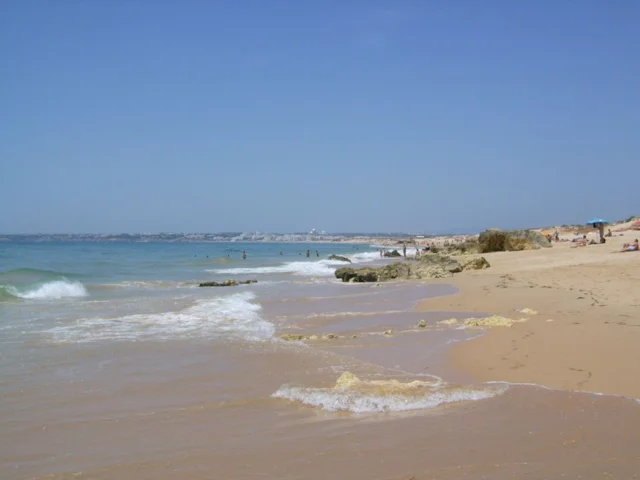Portuguese wildlife site to be saved by rare plant?
3fc696d0-696a-4c23-8c78-d581e4f280db

The Portuguese government is being asked whether it will protect the recently-discovered largest colony of one of the rarest plants in the world on land scheduled for 'development'.
The recent discovery by the Portuguese Botanical Society at Salgados, an internationally renowned wildlife sanctuary, was provoked by the government’s approval for a mega-tourist project on land adjoining the world-renowned lagoon habitat. The survey that discoverd the plant was undertaken at the request of the Friends of Salgados special interest group, a collection of concerned individuals, businesses and NGOs.
An on-line petition that started in 2012 has gathered over 32,000 signatures and is recognised as Portugal’s largest ever environmental protest. It was believed thta the petition had stalled the government's plans, but it appears that campaigners must remain forever vigilant, as this new round of development eyes its targets.
Due to the success of the petition, the government asked the would-be developer to undertake an Environmental Impact assessment (EIA), a course of action that it had been sidestepping with all the considerable force it could muster –now the reason is perhaps becoming clearer. The EIA it subsequently performed was widely dismissed as a whitewash and over 700 emails of protest were sent to the authorities, a fair proportion of which were studied and balanced requests for the government to think again, and leave an inheritance for the future that would bring the country pride rather than shame. Unfortunately, this made no difference and permission was granted for the development of the land into a golf course, five-star hotels and several tourist villages.
However, the Friends of Salgados had also commissioned its own study into the area – and the largest known colony in the world of Linaria algarviana was discovered. This is a rare species that only grows in the Algarve, and is on the International Union for the Conservation of Nature Red List. A spokesperson said: "Linaria algarviana is listed in the EU's Habitats Directive and is legally protected in Portugal. Appropriate site management for this species including traditional grazing activities or control of urban and tourism expansion should be established."
Surprisingly, no mention was made of this plant in the EIA commissioned by the developer, which brings into question the validity of the EIA as a whole, quite apart from Portugal’s responsibility to protect the plant itself. As yet, no response had yet been received by the Friends of Salgados from the Portuguese government.
The recent discovery by the Portuguese Botanical Society at Salgados, an internationally renowned wildlife sanctuary, was provoked by the government’s approval for a mega-tourist project on land adjoining the world-renowned lagoon habitat. The survey that discoverd the plant was undertaken at the request of the Friends of Salgados special interest group, a collection of concerned individuals, businesses and NGOs.
An on-line petition that started in 2012 has gathered over 32,000 signatures and is recognised as Portugal’s largest ever environmental protest. It was believed thta the petition had stalled the government's plans, but it appears that campaigners must remain forever vigilant, as this new round of development eyes its targets.
Due to the success of the petition, the government asked the would-be developer to undertake an Environmental Impact assessment (EIA), a course of action that it had been sidestepping with all the considerable force it could muster –now the reason is perhaps becoming clearer. The EIA it subsequently performed was widely dismissed as a whitewash and over 700 emails of protest were sent to the authorities, a fair proportion of which were studied and balanced requests for the government to think again, and leave an inheritance for the future that would bring the country pride rather than shame. Unfortunately, this made no difference and permission was granted for the development of the land into a golf course, five-star hotels and several tourist villages.
However, the Friends of Salgados had also commissioned its own study into the area – and the largest known colony in the world of Linaria algarviana was discovered. This is a rare species that only grows in the Algarve, and is on the International Union for the Conservation of Nature Red List. A spokesperson said: "Linaria algarviana is listed in the EU's Habitats Directive and is legally protected in Portugal. Appropriate site management for this species including traditional grazing activities or control of urban and tourism expansion should be established."
Surprisingly, no mention was made of this plant in the EIA commissioned by the developer, which brings into question the validity of the EIA as a whole, quite apart from Portugal’s responsibility to protect the plant itself. As yet, no response had yet been received by the Friends of Salgados from the Portuguese government.

